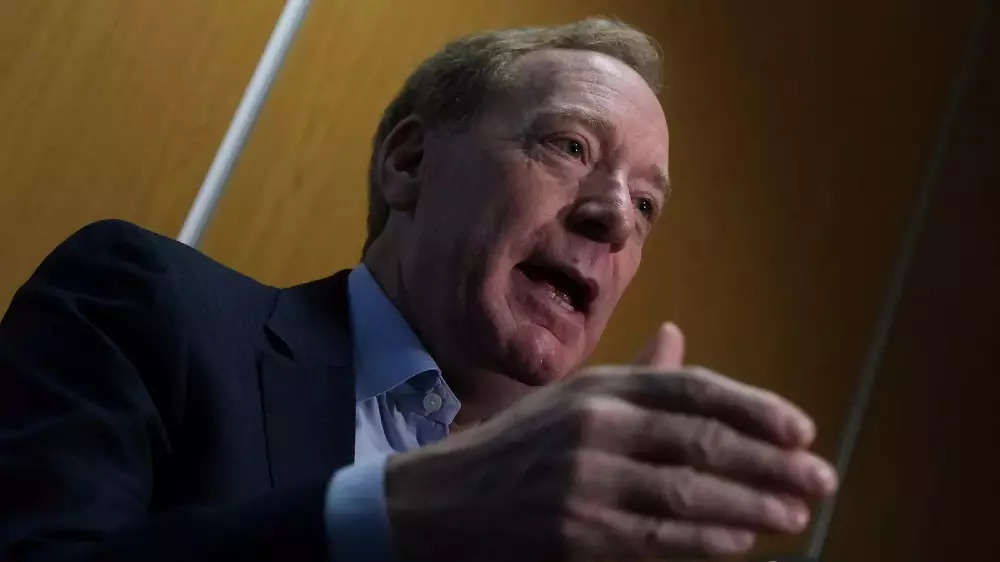At a time of rapid advancements in artificial intelligence (AI) technology space, Microsoft‘s stance on responsible AI governance has gained prominence. The company’s vice chairman and president, Brad Smith, has offered some ideas and suggestions as a company, placed in the Indian context.
He said that India is “experiencing a significant technological transformation that presents a tremendous opportunity to leverage innovation for economic growth.”
New opportunities to improve
Smith said that with OpenAI’s GPT-4 model, which is the underlying technology of Microsoft Copilot, is helping people do things faster, easier and better.
“We’ve seen AI help save individuals’ eyesight, make progress on new cures for cancer, generate new insights about proteins, and provide predictions to protect people from hazardous weather. Other innovations are fending off cyberattacks and helping to protect fundamental human rights, even in nations afflicted by foreign invasion or civil war,” he said.
Guardrails are necessary
Smith also highlighted that while AI is making tasks easier, it becomes important to ensure proper control over AI.
“The guardrails needed for AI require a broadly shared sense of responsibility and should not be left to technology companies alone. Our AI products and governance processes must be informed by diverse multi stakeholder perspectives that help us responsibly develop and deploy our AI technologies in cultural and socioeconomic contexts that may be different than our own,” he added.
To ensure AI accountability, Microsoft’s blueprint outlines five pillars for responsible AI governance:
He said that India is “experiencing a significant technological transformation that presents a tremendous opportunity to leverage innovation for economic growth.”
New opportunities to improve
Smith said that with OpenAI’s GPT-4 model, which is the underlying technology of Microsoft Copilot, is helping people do things faster, easier and better.
“We’ve seen AI help save individuals’ eyesight, make progress on new cures for cancer, generate new insights about proteins, and provide predictions to protect people from hazardous weather. Other innovations are fending off cyberattacks and helping to protect fundamental human rights, even in nations afflicted by foreign invasion or civil war,” he said.
Guardrails are necessary
Smith also highlighted that while AI is making tasks easier, it becomes important to ensure proper control over AI.
“The guardrails needed for AI require a broadly shared sense of responsibility and should not be left to technology companies alone. Our AI products and governance processes must be informed by diverse multi stakeholder perspectives that help us responsibly develop and deploy our AI technologies in cultural and socioeconomic contexts that may be different than our own,” he added.
To ensure AI accountability, Microsoft’s blueprint outlines five pillars for responsible AI governance:
- Government-led safety frameworks: Governments should establish robust safety standards for AI.
- Safety brakes for critical infrastructure: Crucial AI systems need safeguards against misuse.
- Comprehensive legal framework: AI governance should be guided by a technology-based legal structure.
- Transparency and accessibility: AI operations must be transparent and accessible to the public.
- Public-private collaboration: Partnerships should leverage AI to address societal challenges.
Why India is important in AI development
India is the G20 president and chair of the Global Partnership on AI can influence global AI policy. Microsoft says its vision aligns with India’s leadership in shaping an internationally interoperable AI governance framework.
“Many countries will look to India’s leadership and example on AI regulation. India’s strategic position in the Quad and efforts to advance the Indo-Pacific Economic Framework present further opportunities to build awareness amongst major economies and drive support for responsible AI development and deployment within the Global South,” Smith wrote.
Denial of responsibility! Todays Chronic is an automatic aggregator of the all world’s media. In each content, the hyperlink to the primary source is specified. All trademarks belong to their rightful owners, all materials to their authors. If you are the owner of the content and do not want us to publish your materials, please contact us by email – todayschronic.com. The content will be deleted within 24 hours.


